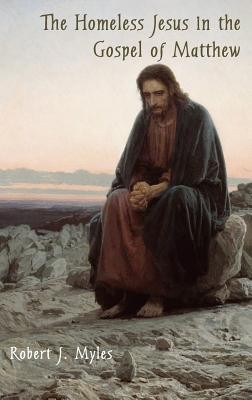
- Išsiųsime per 10–14 d.d.
- Autorius: Robert J Myles
- Leidėjas: Sheffield Phoenix Press Ltd
- Metai: 2014
- Puslapiai: 220
- ISBN-10: 1909697389
- ISBN-13: 9781909697386
- Formatas: 15.6 x 23.4 x 1.4 cm, kieti viršeliai
- Kalba: Anglų
- Extra -15 % nuolaida šiai knygai su kodu: ENG15
Atsiliepimai
Aprašymas
If homelessness typically entails a loss of social power and agency, then why do New Testament scholars so often envisage Jesus' itinerancy as a chosen lifestyle devoid of hardship? In this provocative new reading of the Gospel of Matthew, Robert J. Myles explores the disjuncture between Jesus and homelessness by exposing the political biases of modern Western readers. Drawing on the ideological politics of homelessness in contemporary society, Myles develops an interpretative lens informed by the Marxist critique of neoliberalism and, in particular, by the critical theory of Slavoj ÃiÃek. Homelessness, from this perspective, is viewed not as an individual choice but rather as the by-product of wider economic, political and social forces. Myles argues that Jesus' homelessness has become largely romanticized in recent biblical scholarship. Is the flight to Egypt, for instance, important primarily for its recasting of Jesus as the new Moses, or should the basic narrative of forced displacement take centre stage? The remedy, Myles contends, is to read directly against the grain of contemporary scholarship by interpreting Jesus' homelessness through his wider economic, political and social context, as it is encoded in the biblical text. To demonstrate how ideology is complicit in shaping the interpretation of a homeless Jesus, selected texts from the Gospel of Matthew is re-read to amplify the destitution, desperation and constraints on agency that are integral to a critical understanding of homelessness. What emerges is a refreshed appreciation for the deviancy of Matthew's Jesus, in which his status as a displaced and expendable outsider is identified as contributing to the conflict and violence of the narrative, leading ultimately to his execution on the cross.EXTRA 15 % nuolaida su kodu: ENG15
Akcija baigiasi už 6d.04:37:54
Nuolaidos kodas galioja perkant nuo 10 €. Nuolaidos nesumuojamos.

- Autorius: Robert J Myles
- Leidėjas: Sheffield Phoenix Press Ltd
- Metai: 2014
- Puslapiai: 220
- ISBN-10: 1909697389
- ISBN-13: 9781909697386
- Formatas: 15.6 x 23.4 x 1.4 cm, kieti viršeliai
- Kalba: Anglų




Atsiliepimai